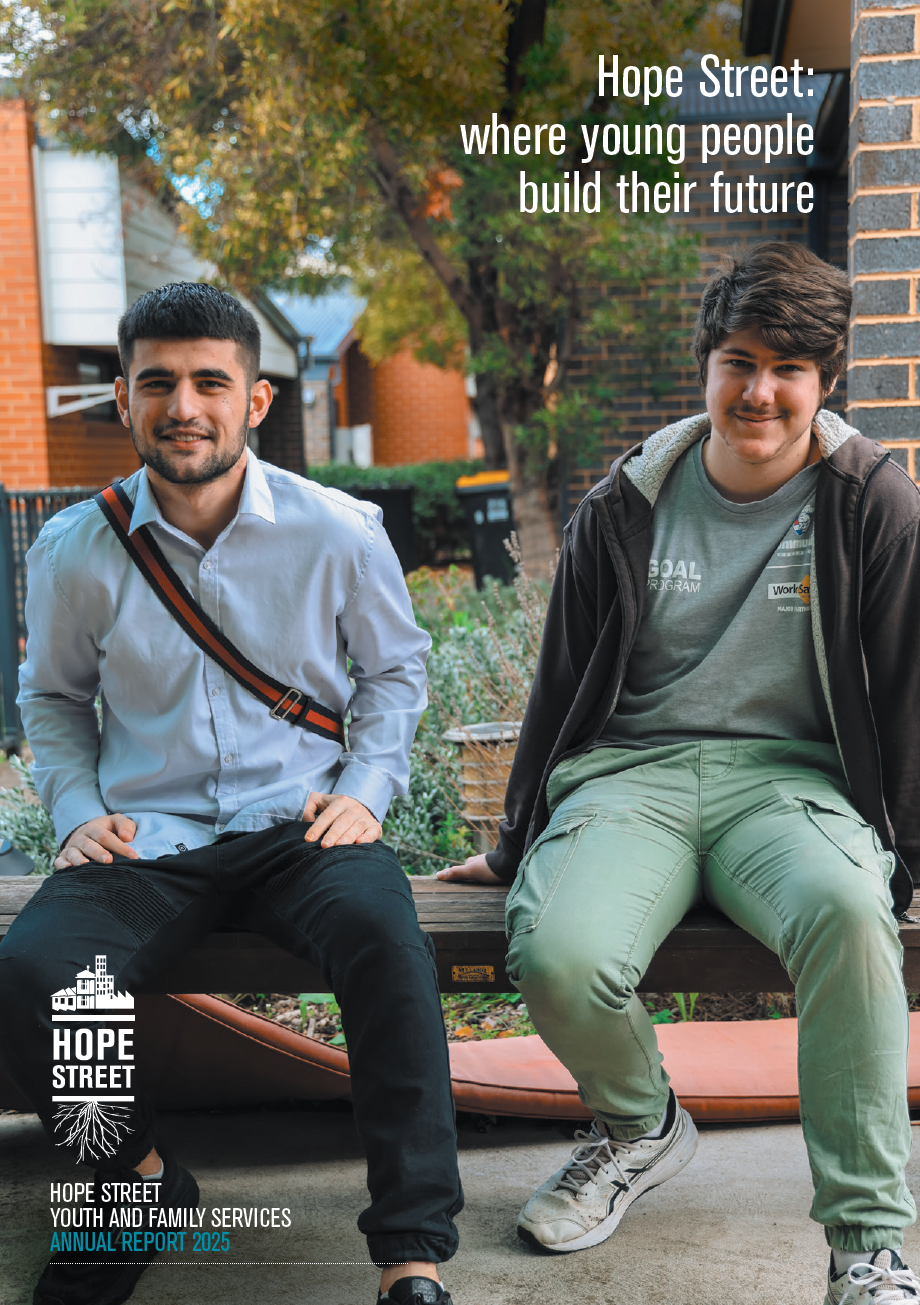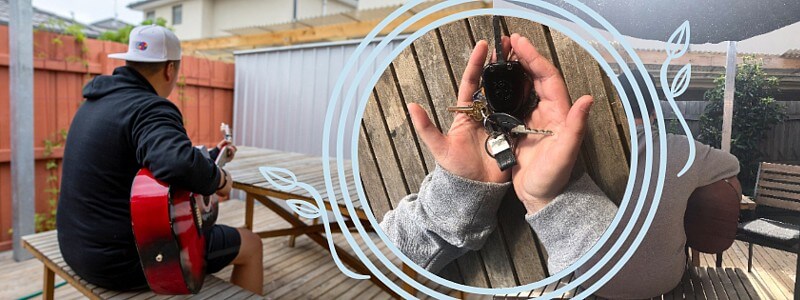Jesse (name changed to protect his identity) is 21 years old and has been living in a Hope Street residential unit for the past three years, after becoming homeless at the age of 16 when his family kicked him out.
"I failed year 11 because I got diagnosed with diabetes that year and before the diagnosis I kept falling asleep in class – I just couldn't keep my eyes open. I ended up in hospital for a month. When I got out I tried my hardest to get back into schooling and to do well, but I ended up failing. My parents, they didn't like that."
Jesse's parents enrolled him in another school where he was forced to wear dresses and skirts despite his identity as transgender. "I couldn't bring myself to do that. I know education means a lot, but to me being able to be myself meant much more," he says.
At that point he was kicked out of home and spent the next two years' couch-surfing at extended family and friends' houses. He was sleeping in the school that his then girlfriend attended when the teachers discovered him. They allowed him to sleep in an empty classroom and connected him into homelessness services, which led him to Hope Street Youth and Family Services.
Within two weeks of connecting with Hope Street, Jesse was moved in to one of the residential units. The site accommodates young people aged 16 to 25 years who are experiencing homelessness. They live independently in their own units and receive case management, counselling and life skills training.
Jesse arrived at Hope Street aged 18, with no driver's licence, having failed year 11, being unemployed, estranged from his family and never having lived alone. Now, three years later, he has completed year 11 and year 12 through VCAL, he has his driver's licence, he knows how to live independently and cook (he is known as the residential chef) and clean (though he says he doesn't like cleaning much), he has a close group of friends, he is reunited with his family and visits them regularly, and he has performed at a number of Hope Street events and presentations – he is a gifted self-taught singer, song-writer and guitarist.
When asked what Hope Street means to him, Jesse struggled to hide his emotions. "I don't want to get emotional... I can't even put it into words how grateful I am for this place. All the workers I've gotten to meet and all the opportunities I've got to have, like performing at schools or at homeless awareness events. Hope Street was the first place I ever found that really accepted me as someone who's transgender. I could just come here and people were so supportive of me just being myself. Even when I was unsure about it because of all the stress of my family not accepting it, the Hope Street team was there to support me. The workers don't even let other people know that I'm transgender – I'm just me and that's just it. I really like that. Hope Street is always there for you, no matter what," he said.
He now enjoys a tight sense of community with the other young people staying at the Thomastown site. "The friends I've made here and the other tenants, we're family now. We go out as a group all the time, at least once per week. We do sleep overs, we cook together, we play games, we play basketball. We try to include everyone, even the young people who can't speak much English.
What might the future hold? Jesse is currently looking for a job. Whilst his work experience is in the cooking/chef area, he's now hoping to find a job in the retail sector. "I'd like to help someone else feel good – people buy clothes to make themselves feel better, and I'd like to be part of that," he said.
And ultimately he'd like to make it as a singer-songwriter. "That's my dream, that's my goal. With everything that I've ever gone through, it's always been that tiny bit of hope that I might be famous one day that's kept me alive. I cherish music more than anything in the world," he said. He also dreams of attending university one day and completing a Bachelor of Arts, majoring in ancient history.
When asked if he had a message to share with other young people who are experiencing homelessness, Jesse said this: "Homeless is neglect from your family. It's never easy, no-one ever wants it. Be open to help. As a young person you're not homeless for no reason. You've been kicked out of your home and your family and the neglect you feel is always heavy – you think who else would want you if your family doesn't. But the people who are here to help, they are not like your family. When people are willing to help, just try your hardest to open up and let them help you. They're not going to leave you or kick you out – they will help you."
Jesse says he no longer feels homeless. "I don't feel homeless when I'm here. This place is my home. I look forward to getting home every single day."




